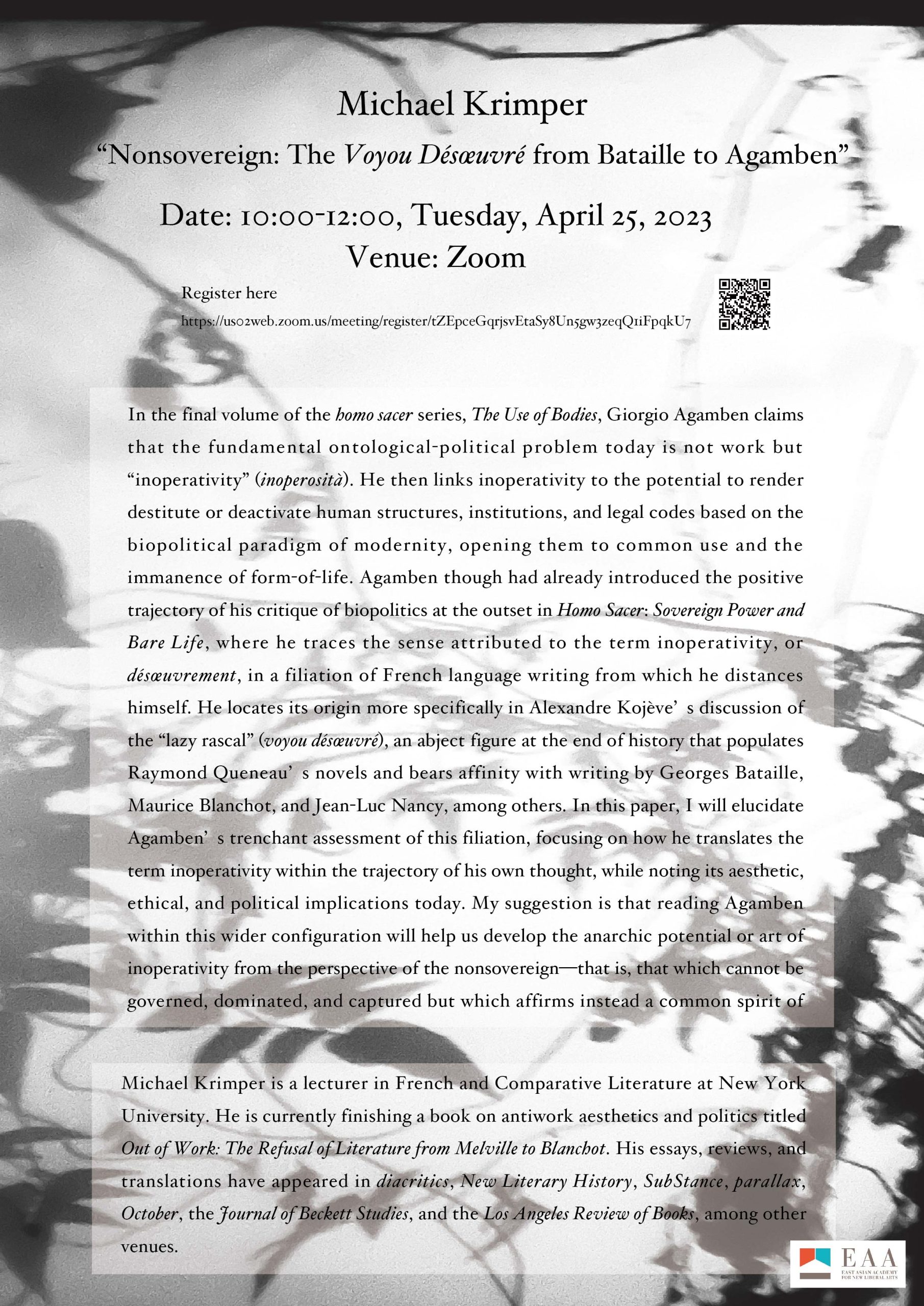
Michael Krimper’s lecture
“Nonsovereign: The Voyou Désœuvré from Bataille to Agamben”
Date: 10:00-12:00 (JST), Tuesday, April 25, 2023
Venue: Zoom (Register here)
In the final volume of the homo sacer series, The Use of Bodies, Giorgio Agamben claims that the fundamental ontological-political problem today is not work but “inoperativity” (inoperosità). He then links inoperativity to the potential to render destitute or deactivate human structures, institutions, and legal codes based on the biopolitical paradigm of modernity, opening them to common use and the immanence of form-of-life. Agamben though had already introduced the positive trajectory of his critique of biopolitics at the outset in Homo Sacer: Sovereign Power and Bare Life, where he traces the sense attributed to the term inoperativity, or désœuvrement, in a filiation of French language writing from which he distances himself. He locates its origin more specifically in Alexandre Kojève’s discussion of the “lazy rascal” (voyou désœuvré), an abject figure at the end of history that populates Raymond Queneau’s novels and bears affinity with writing by Georges Bataille, Maurice Blanchot, and Jean-Luc Nancy, among others. In this paper, I will elucidate Agamben’s trenchant assessment of this filiation, focusing on how he translates the term inoperativity within the trajectory of his own thought, while noting its aesthetic, ethical, and political implications today. My suggestion is that reading Agamben within this wider configuration will help us develop the anarchic potential or art of inoperativity from the perspective of the nonsovereign—that is, that which cannot be governed, dominated, and captured but which affirms instead a common spirit of insubordination.
Michael Krimper is a lecturer in French and Comparative Literature at New York University. He is currently finishing a book on antiwork aesthetics and politics titled Out of Work: The Refusal of Literature from Melville to Blanchot. His essays, reviews, and translations have appeared in diacritics, New Literary History, SubStance, parallax, October, the Journal of Beckett Studies, and the Los Angeles Review of Books, among other venues.








